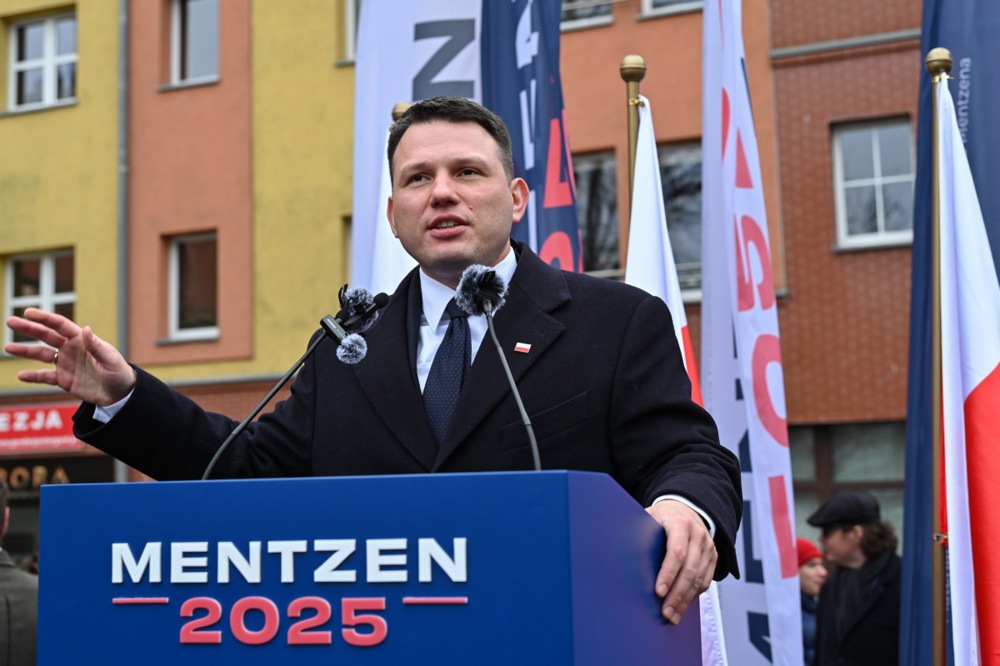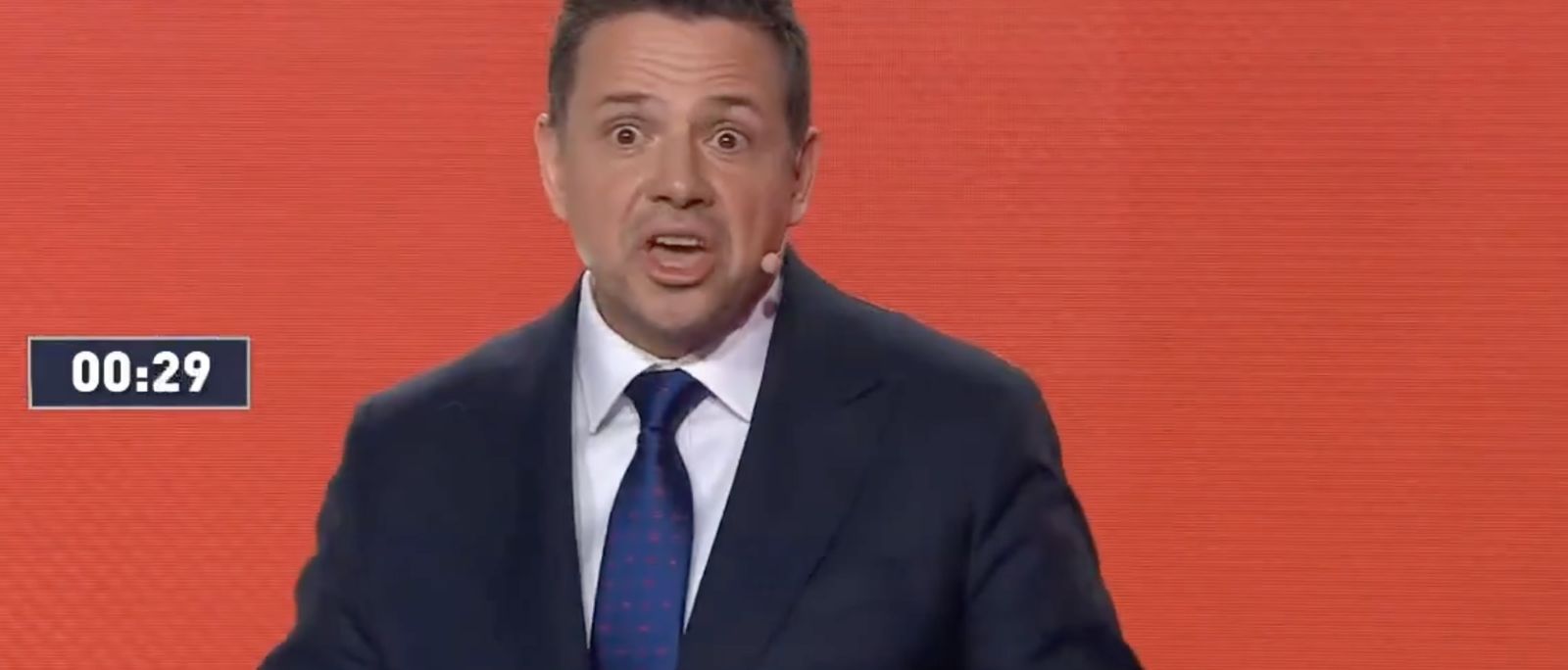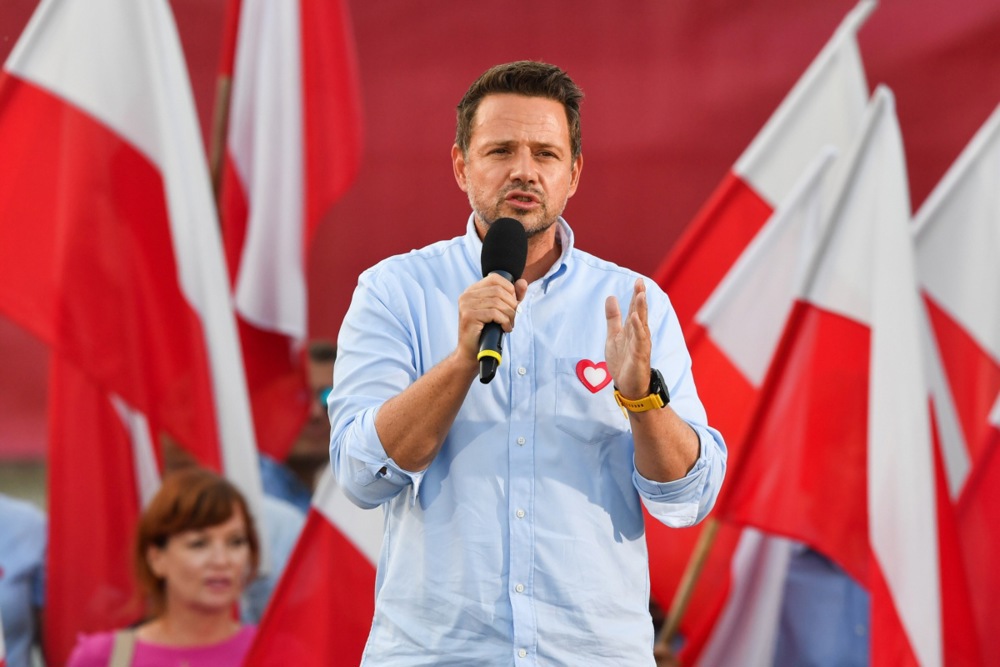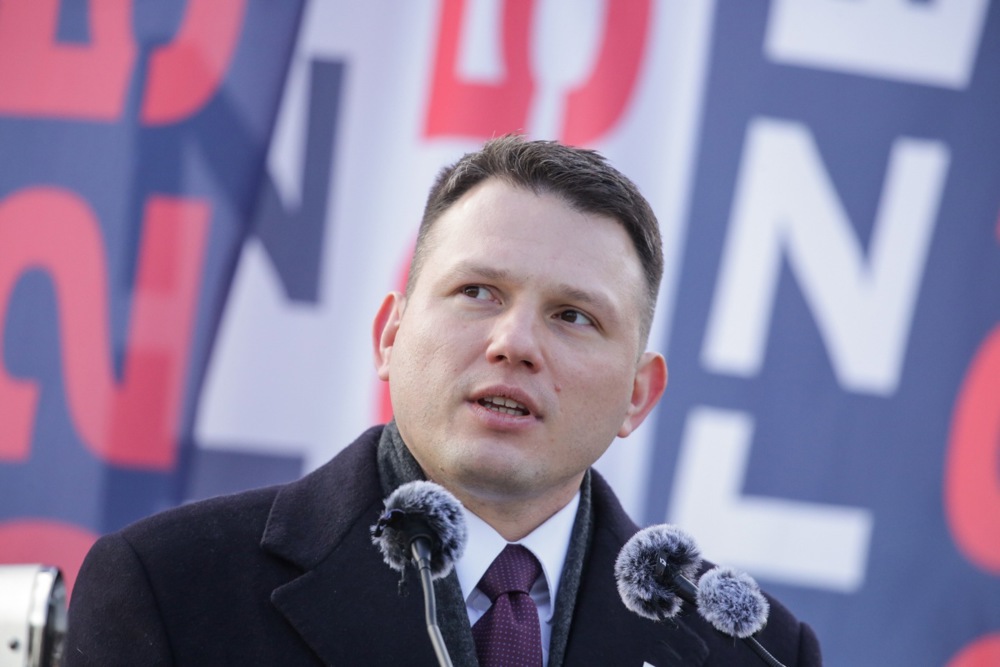A row over spanking children was the highlight of Poland’s marathon televised presidential election debate on May 13 that saw one candidate heatedly accuse another of “condoning violence”.
Speaking on the debate between the 13 candidates on government-controlled broadcaster TVP, Magdalena Beijat, of the Left party, accused right wing Confederation party hopeful Slawomir Mentzen of “condoning violence” after he claimed it was a right of parents to discipline their children with “ordinary spanks”.
Biejat had pressed Mentzen on whether his permissive stance on physical discipline extended to “economic violence” such as unpaid child support to which the Confederation’s candidate replied that parents who dodge alimony “should be prosecuted to the full extent of the law”, but reiterated his view that mild spanking is not harmful.
Biejat then accused Mentzen of “condoning violence” and told him that “you have said many times that a simple spank never hurt anyone” to which Mentzen reacted by asking: “And who did it hurt?” .
While spanking children was outlawed in Poland by a 2010 amendment to the Family and Guardianship Code that explicitly bans all corporal punishment by parents and carers, opinion surveys continue to show that a significant minority of Poles view ‘light spanking’ as acceptable.
Mentzen, an MP and tax adviser who has mobilised young male voters with his libertarian views and skepticism of the EU is polling around 11-15 per cent while Biejat, who has campaigned in favour of abortion on demand and LGBT rights, is polling between 4 and 6 per cent.
Both candidates trail prime minister Donald Tusk’s centre-left presidential candidate Rafał Trzaskowski, the Mayor of Warsaw and Civic Coalition (KO) front‑runner, who leads with poll ratings between 30-35 per cent, and the opposition Conservatives (PiS) candidate Karol Nawrocki who is polling between 24 and 30 percent ahead of the May 18 first round vote.
While the four-hour television debate asked a lot from candidates and audience alike, it began with independent candidate Krzysztof Stanowski attacking the TVP debate host Dorota Wysocka-Schnepf as the “high priestess of propaganda”.
Wysocka-Schnepf, whose husband is awaiting nomination as an ambassador of Tusk’s government, was deemed a controversial choice to chair the debate and her selection had been protested by most of the candidates prior to the event.
The TV anchor is a journalist and author of material perceived as being supportive of Rafał Trzaskowski and presents a TV show which has concentrated on attacking the opposition Conservatives (PiS) and the Confederation parties.
Her accuser, Stanowski, is a journalist and owner of the popular Kanał Zero internet broadcaster who has made a point of repeatedly stating that he is not standing to win but to cover the presidential election from “within”. Kanał Zero has conducted three hour-long interviews with all the presidential hopefuls, reporting extensively on all presidential debates as well as exposing problems with the process of registering candidates.
Following the debate TVP faced claims of failing to maintain balance during the event as it was alleged that several liberal pro-government journalists watching the debate knew in advance the questions that were going to be put by the TVP’s anchor.
While Conservative portal Niezależna wrote that it was highly likely the content of the questions was already known by the front-runner Trzaskowski, most commentators agreed the performance of the presidential favourite was disappointing.





